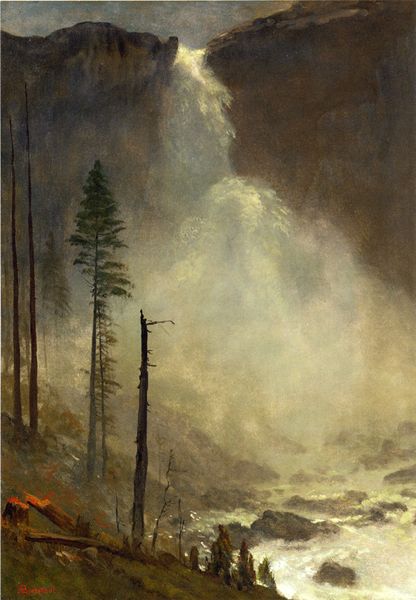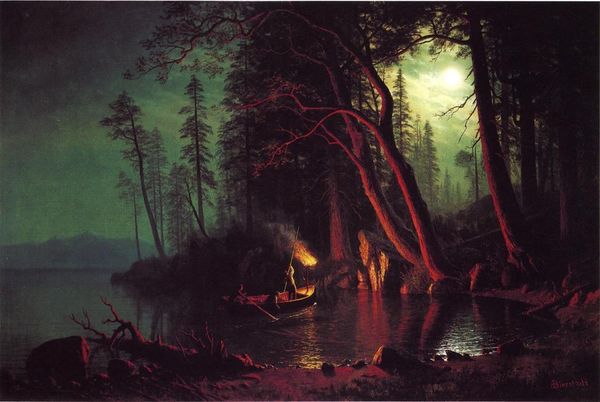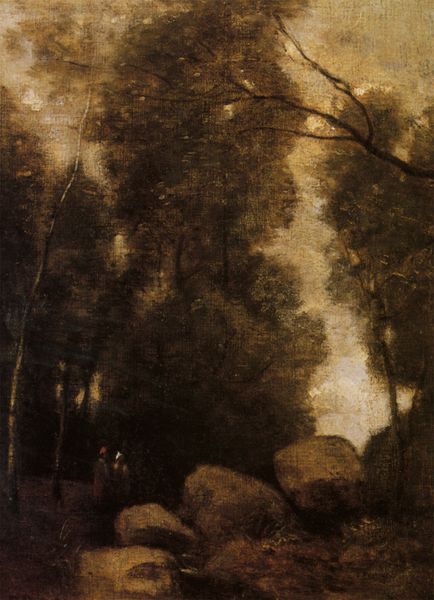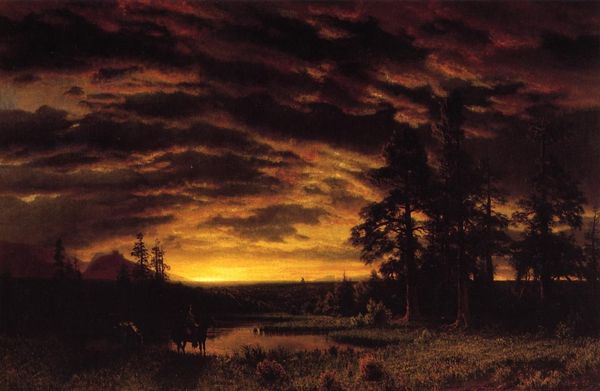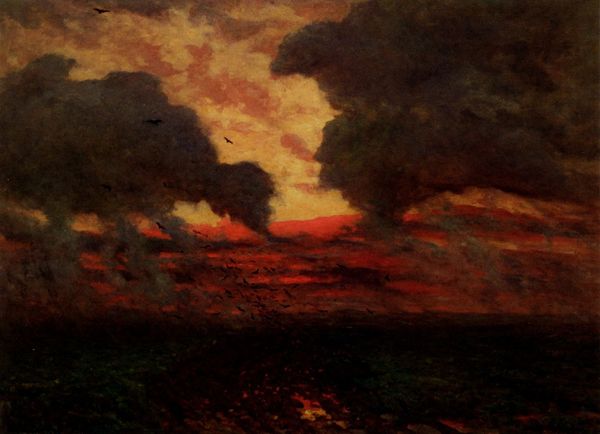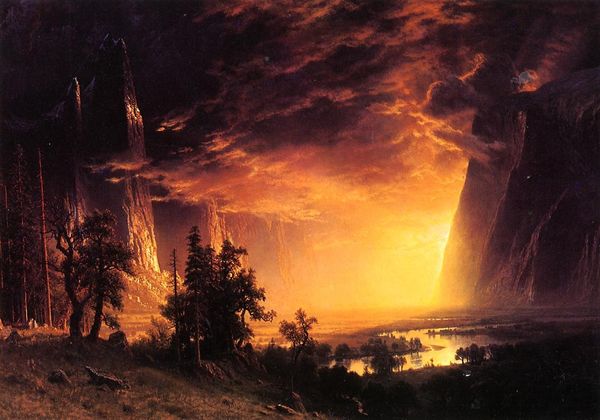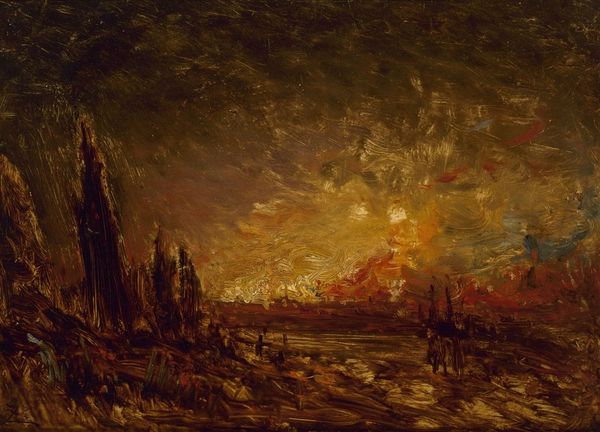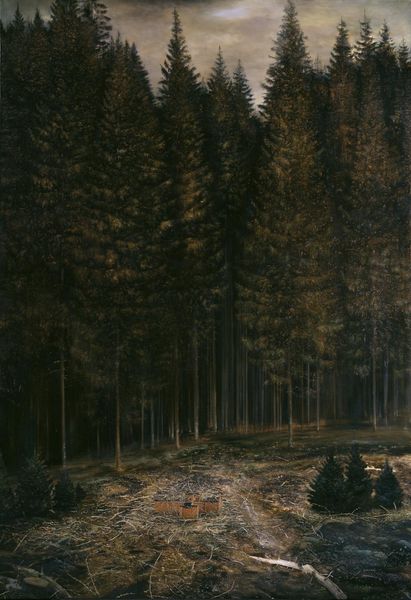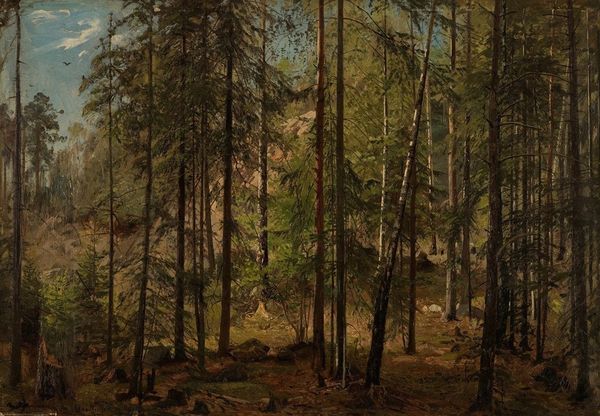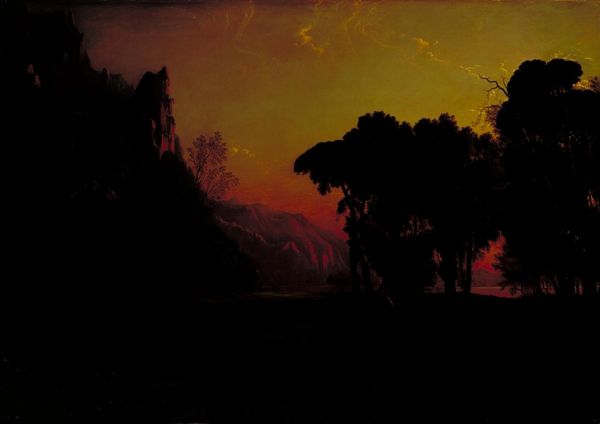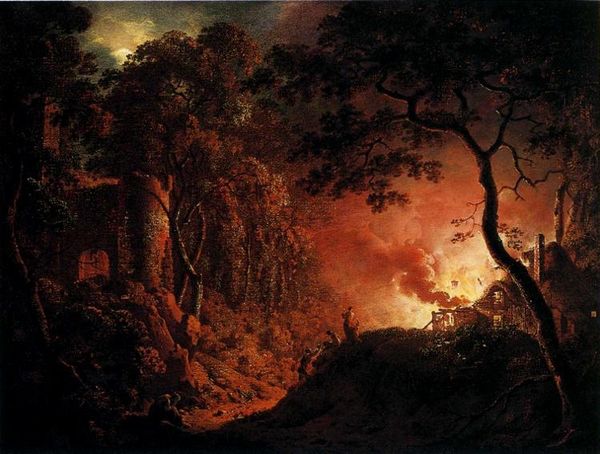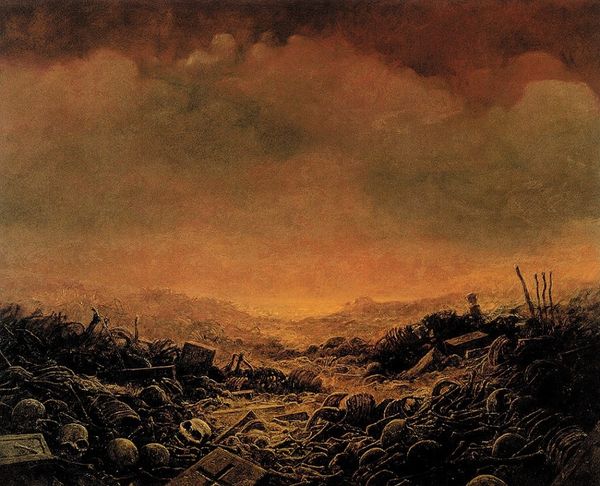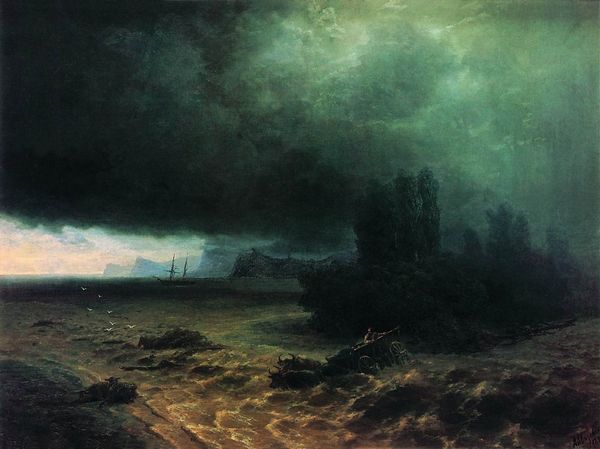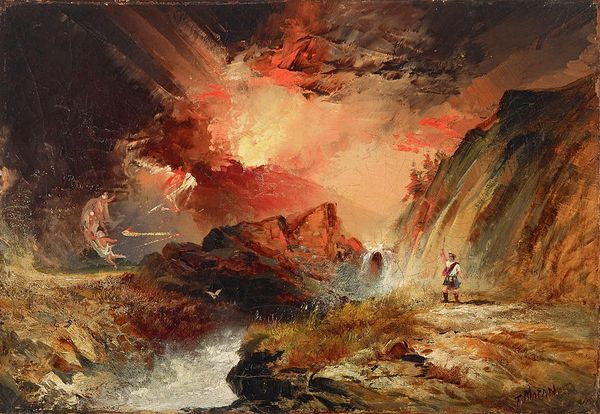
Copyright: Public Domain: Artvee
Curator: This is Albert Bierstadt’s "The Trappers’ Camp," painted in 1861. The Hudson River School painter renders a nocturnal scene, showcasing his dramatic use of light and shadow. Editor: My first impression is, wow, it's moody! All that darkness broken by the fiery glow of what looks like a campsite—it feels both ominous and strangely comforting. A little spooky, too! Curator: Definitely! Bierstadt was playing with the sublime, the idea of nature as awe-inspiring, maybe even a bit threatening. This canvas portrays nature as both a resource to be exploited and a spectacle. These camps were instrumental in extracting wealth in animal pelts. Editor: Oh, right, "trappers." I was too busy getting lost in the atmosphere! It’s interesting, how the light almost romanticizes this scene, though. I find that my focus immediately hones on the bright orange light coming from the tents, almost obscuring everything else from view. Do you think that’s intentional misdirection? Curator: Absolutely. This painting aligns itself with the whole artistic trend of romanticizing Western expansion, downplaying its harsh realities in favor of dramatic landscapes. This "plein-air" work exemplifies the visual strategies employed by Bierstadt and his colleagues. Editor: I wonder what a real trapper would think. Probably wouldn’t wax so poetic about the sublime when trying to stay warm. But speaking of "wow" factors, what do you think of how he renders light itself as its own character, creating so much tension, highlighting textures and yet obscuring almost all form and material, with stark contrast? Curator: Absolutely; and you can clearly witness the socio-economic tensions playing out right within this landscape. The moon is a silent, perhaps ironic witness to the industry of these "romantic" camps. It is an interesting perspective into the public understanding of romanticizing wealth extractions and a culture dependent on it. Editor: "Ironic" is the perfect word to conclude, I believe. There’s a definite push and pull between how idyllic it looks, and the true implications of a lifestyle we romanticize a bit too much from a safe distance.
Comments
No comments
Be the first to comment and join the conversation on the ultimate creative platform.
